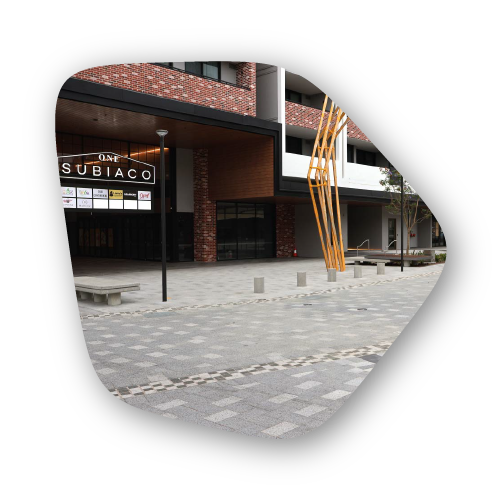
Paver Maintenance Made Easy: Tricks To Extend Their Life And Keep Them Looking Brand New
Pavers are a premium choice for patios, pool surrounds, driveways, and walkways — offering style, durability, and timeless curb appeal. But even the best materials need a little TLC. Without regular care, pavers can lose their colour, shift out of place, or become stained and weathered far sooner than expected.
The good news? You don’t need to be a tradie or spend every weekend scrubbing to keep your pavers looking sharp. With a few smart habits and some strategic maintenance, your pavers can stay as crisp and clean as the day they were laid — for decades.
Here’s your go-to guide for low-fuss paver maintenance, with expert-backed tricks to extend their lifespan, boost your home’s presentation, and get maximum ROI from your outdoor investment.
Why Paver Maintenance Matters
Before we dive into the how-to, let’s clarify the “why”.
- Preserve aesthetic appeal: Faded, dirty or weed-covered pavers ruin the look of even the most thoughtfully designed space.
- Protect structural integrity: Minor issues like shifting or erosion can become costly repairs if left unchecked.
- Boost safety: Uneven or slippery pavers can be a hazard — especially around pools and entrances.
- Increase property value: A well-maintained outdoor area contributes significantly to a home’s street appeal and resale value.
Now, let’s look at the easiest and most effective ways to protect your pavers year-round.
1. Seal Your Pavers (And Re-Seal Every Few Years)
Sealing is the single most important thing you can do to protect pavers from stains, fading, water absorption, and surface wear.
Benefits of sealing:
- Repels water, oil and grime
- Helps resist algae, moss and mould
- Prevents UV damage and colour fading
- Makes cleaning easier
How often to seal:
Every 2–5 years, depending on the type of sealer, climate conditions and how much traffic the area gets.
Pro tip: Use a breathable sealer specifically designed for your paver material — for example, different sealers are used on concrete, natural stone, and clay pavers.
2. Clean Regularly With a Gentle Approach
Monthly tasks:
- Sweep or blow leaves and debris
- Rinse with a garden hose
- Spot-clean spills promptly (e.g., food, drinks, oil)
Quarterly or seasonal clean:
- Use a paver-specific cleaner diluted in warm water
- Scrub with a soft-bristle broom or mop
- Avoid acidic or bleach-based cleaners (especially on natural stone)
Can I pressure wash pavers?
Yes — but with caution. Use low to medium pressure and avoid holding the nozzle too close to the surface, which can erode joint sand or damage the paver’s finish.
Premium pavers are typically more dense and compact than cheaper varieties. This added density makes them more resistant to wear, impact, and weather extremes.
Why it matters: Less porous pavers mean less chance of stains, moss build-up, or erosion over time. That makes them ideal for driveways, patios, pool surrounds, and high-traffic commercial spaces.
3. Re-Sand Paver Joints When Needed
The fine sand between pavers isn’t just for looks — it keeps the surface stable and helps prevent weed growth and water infiltration.
Signs your joints need attention:
- Sand has eroded or washed out
- Pavers are starting to wobble or shift
- Weeds or ants are appearing between gaps
How to re-sand:
- Sweep clean and ensure joints are dry.
- Spread jointing sand evenly across the surface.
- Use a broom to push the sand into the gaps.
- Compact the pavers if necessary, then lightly hose to settle the sand.
Best product: Consider polymeric sand — it hardens slightly when wet, providing better resistance to erosion and weeds.
4. Prevent and Treat Weeds, Moss, and Algae
Weeds don’t need much to thrive — and once they find a gap, they’ll be back season after season unless you act fast.
Prevention:
- Keep surface clear of leaves and soil
- Use polymeric sand to lock joints
- Apply a pre-emergent herbicide annually if necessary
Treatment:
- Remove weeds by hand or with a narrow scraper
- Treat moss and algae with vinegar or a moss-killer solution (eco-safe options are available)
- Improve drainage and airflow to reduce moisture build-up
Tip: Shaded or poorly drained areas are most vulnerable. Regular sunlight and air circulation are your best defences.
5. Fix Loose or Sunken Pavers Quickly
Even minor movement can lead to bigger problems if ignored. A slightly sunken or uneven paver could cause water pooling, trip hazards, or further shifting.
How to reset a loose paver:
- Carefully lift it using a flat tool or screwdriver.
- Add or adjust the base layer (sand or gravel).
- Replace the paver, ensuring it sits level with its neighbours.
- Top up jointing sand and compact if needed.
Why it happens: Erosion, tree roots, heavy use or water issues can all contribute to movement. Address the root cause to avoid repeat issues.
6. Protect High-Traffic or Heavy-Use Areas
Driveways, outdoor kitchens, pool decks, and entertainment zones wear faster due to constant use and exposure to food, chemicals or vehicle fluids.
What you can do:
- Use heavy-duty or stain-resistant sealers
- Install protective mats in BBQ zones
- Rinse areas around pools regularly to prevent chemical build-up
- Avoid dragging heavy furniture or pots across the surface
Bonus tip: Consider paver types with textured or non-slip finishes for better durability and safety.
7. Stay Ahead of Seasonal Changes
Different seasons bring unique challenges — being proactive ensures your pavers stay in top condition year-round.
Summer:
- Watch for sun exposure and fading
- Clean off sunscreen, chlorine, or salt residue
Autumn:
- Clear fallen leaves quickly to prevent staining
- Re-sand joints before the wet season
Winter:
- Ensure water drains freely to prevent pooling
- In cooler regions, avoid using de-icing salts (they can degrade pavers)
Spring:
- Ideal time for deep cleaning and sealing
- Check for any shifting or wear from wet months
So, Why Choose Bonita Stone?
Paver maintenance doesn’t have to be time-consuming or complicated. With a few consistent habits and the right techniques, you can dramatically extend the life of your pavers, reduce repair costs, and keep your outdoor spaces looking sharp year after year.
Whether you’ve invested in a show-stopping pool area, a stylish alfresco space, or a durable driveway, looking after your pavers means protecting your lifestyle — and your home’s value.
Ready to Build with the Best?
Whether you’re planning a full outdoor renovation or a simple garden path, choosing the right paver makes all the difference. If you want premium quality you can trust, give Bonita Stone a call today or visit our website to view the range.
✨ Australian made. Built to last. Designed to impress.






